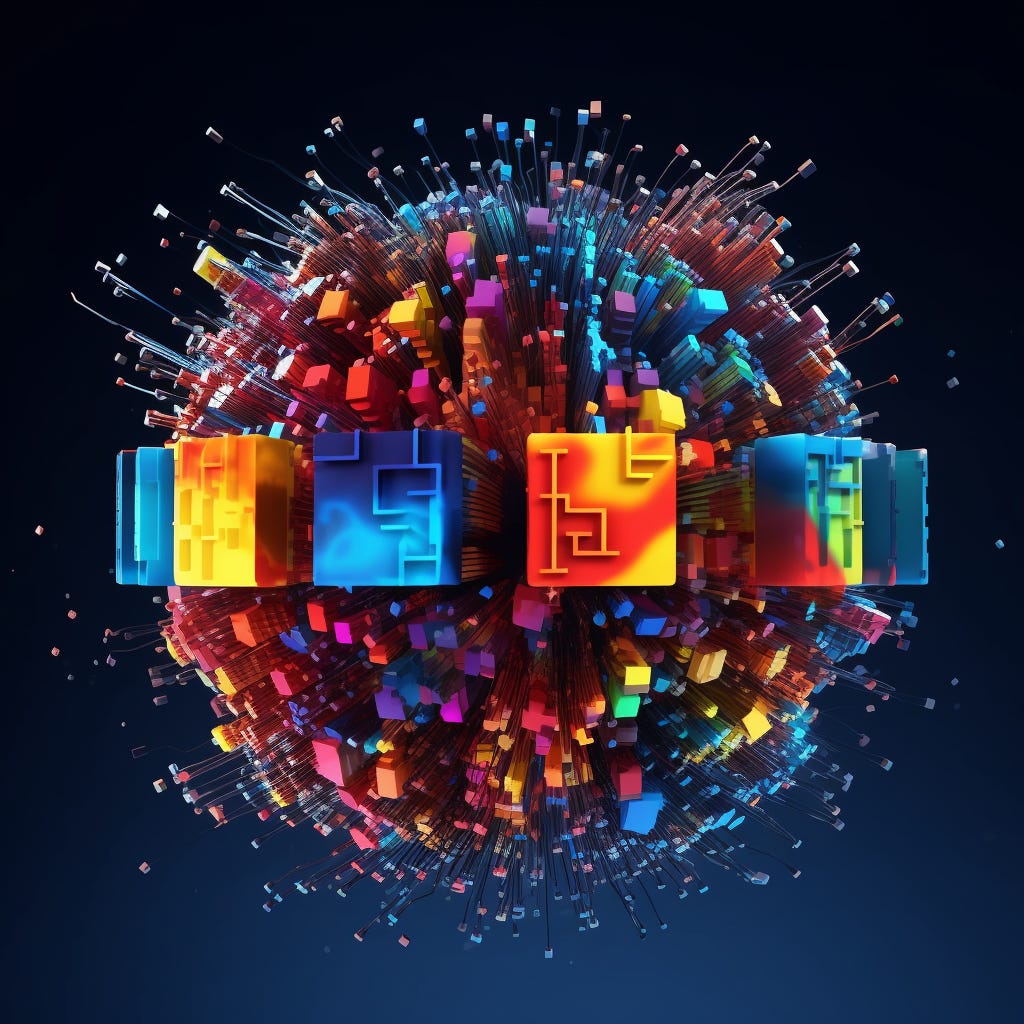GPT-Microsoft
Sundays, The Sequence Scope brings a summary of the most important research papers, technology releases and VC funding deals in the artificial intelligence space.
Next Week in The Sequence:
Edge 295: Our series about new techniques in foundation models continues with some cutting edge topics. We discuss self-instruct model, Stanford University’s research behind Alpaca and Microsoft’s new Semantic Kernel framework.
Edge 296: We deep dive into OpenAI’s method to use GPT-4 to interpret neuron’s in other LLMs. Super interesting stuff!
📝 Editorial: GPT-Microsoft
From the traditional tech incumbents, there is no doubt that Microsoft has been the company that has benefited the most from the rise of generative AI. The partnership and investment in OpenAI have positioned Microsoft in a unique place to enable generative AI capabilities across its entire stack, from Windows to Office 365. Copilots for everything seem to be Microsoft’s generative AI flag, and it was incredibly present at this week’s Build conference.
Build is Microsoft’s premier developer event, and the 2023 edition felt like an AI event. Microsoft released an astonishing number of products and capabilities that embed GPT-4 and ChatGPT as first-class citizens. Here are some of the most relevant announcements:
Plugins Everywhere: Microsoft announced that it's adopting OpenAI’s plugin standard, enabling interoperability between ChatGPT and Microsoft’s Copilot offerings.
Microsoft 365 CoPilot Plugins: Building on the previous points, Microsoft announced new plugins for its 365 CoPilot offering.
Azure AI Studio: A new experience that allows developers to interact with GPT-4 and ChatGPT instances, as well as augment them with data.
Windows Copilot: Microsoft is bringing the CoPilot assistant natively to Windows, with integration with Bing, Edge, and Office apps.
Windows Terminal Chatbot: The native command line in Windows is also getting a CoPilot experience.
Microsoft Fabric Copilot: Microsoft’s Fabric is a unified data analytics offering that includes data warehousing, integration, data science, and several other capabilities, including a new CoPilot experience.
These are just a small set of the AI announcements that took place at Build. Just like search for Google and cloud computing for AWS, AI has been the trend that has solidified Microsoft’s competitive position, and they are certainly leaning into it.
🔎 ML Research
Prompt Understanding in Text-to-Image Models
Berkey AI Research(BAIR) published a paper detailing a method that uses LLMs to improve prompts used in text-to-image diffusion models. The core idea is to augment diffusion models with spatial and common sense reasoning capabilities powered by LLMs —> Read more.
AlpacaFarm
Stanford University researchers published a paper outlining AlpacaFarm, a method to improve the performance of RLHF fine tuning techniques. AlpacaFarm improves RLHF processes by using a simulator that can try new methods to learn from human feedback and incorporate the best performing ones to the target model —> Read more.
Text-to-Speech, Speech-to-Text for 1100 Languages
Meta AI published speech-to-text and text-to-speech models that work efficiently on more than 1100 languages. The models combine wav2vec 2.0 with self-supervised learning methods that includes labeled data for 1100 languages and unlabeled data for more than 4000 languages → Read more.
Differential Privacy in ML
Google Research published a paper reviewing the current state of ML differential privacy methods. The paper discusses the core DP ML techniques from an engineering and research perspective —> Read more.
🤖 Cool AI Tech Releases
Microsoft AI Announcements
Microsoft unveiled a decent group of AI products at its Build conference —> Read more.
CodeT5+
Salesforce Research open source CodeT5+,a new family of code generating LLMs —> Read more.
🛠 Real World ML
CoPilot at GitHub
Developers behind GitHub Copilot project discuss the history and evolution of the project —> Read more.
📡AI Radar
Anthropic announced a new massive funding round of $450 million to continue its ambitions of competing with OpenAI.
Builder.ai announced a massive $250 million series D for its AI-based product building platform.
Powered by AI chip demand, NVIDIA’s stock had one of the biggest rallies ever by a tech company pushing it closer to a trillion dollar market cap.
Google introduced Product Studio, a new tool that uses generative AI to produce product.
Adobe integrated its generative AI Firefly platform into Photoshop.
Red Hat unveiled Ansible Lightspeed , an AI-powered automation platform.
OpenAI’s ChatGPT app surpassed 500k downloads in a few days.
AI-based video creation platform Gen.ai raised a $5.2 million seed round.
Snowflake announced the acquisition of AI search startup Veeva.

